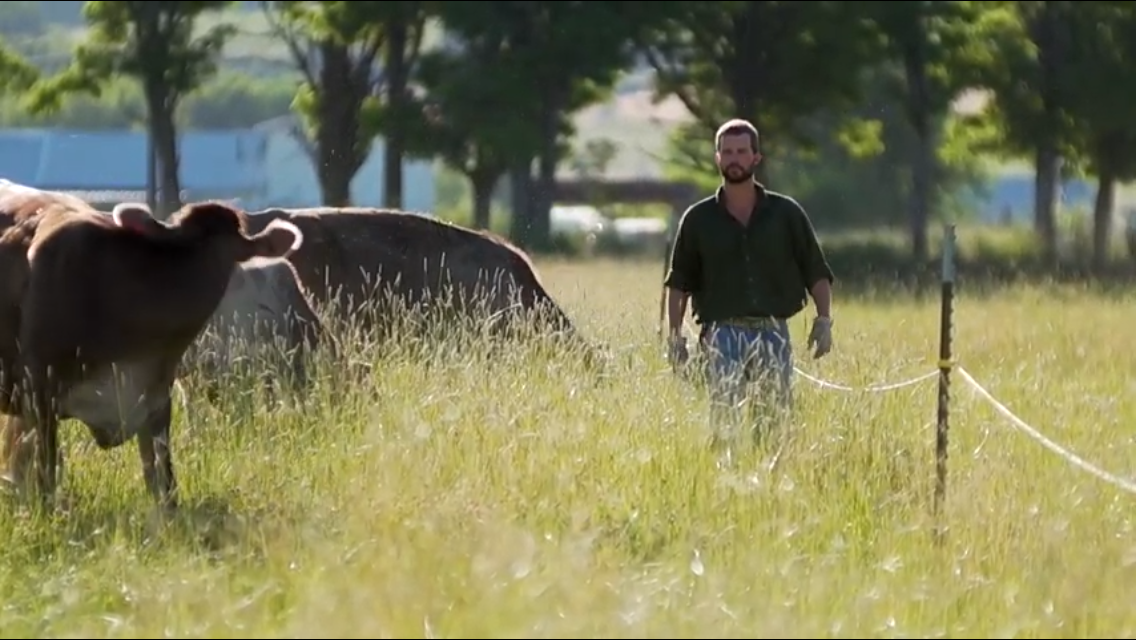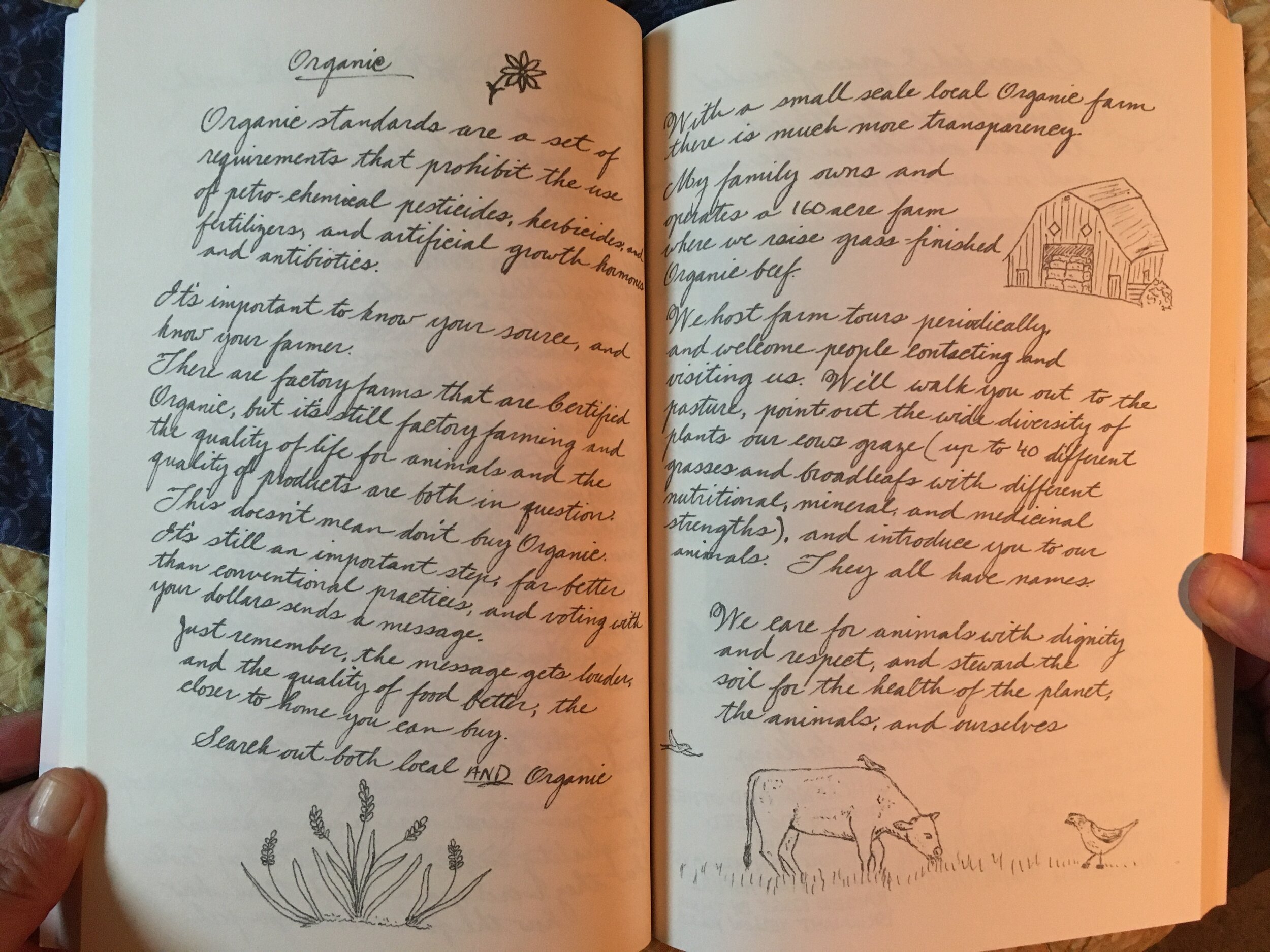Why Organic? Isn’t it a lot of paperwork and expense? Has it been corrupted by Big Ag and factory farming?
These are questions we receive, if not frequently, then at least with regularity. And they are good questions.
Why Is Organic Certification Important?
“Organic Standards are a set of requirements that prohibit the use of petro-chemical pesticides, herbicides, and fertilizers and artificial growth hormones and antibiotics.” – Share the Gift: From the training journals of Aaron F Dill
We hold accountability in the food supply to be vital. You need to be assured that the food you are relying on to provide the nourishment your body needs to be healthy and strong is in fact pure and nutritious and capable of delivering those nutrients to you.
We believe the Organic certification process is an important piece of that accountability in this day and age. We welcome anyone to our farm, come take a farm tour or just call us and schedule a visit, and we’ll show you what we do. We can talk about the methods we employ for dealing with weeds, pests, and the occasional sickness in animals, in a way that promotes health for our animals, our fields, our Earth, and our people. The Organic Certification provides that same information for people who haven’t made time to come here. They can look at the USDA Organic stamp and know that this product was raised without harmful inputs and does not contain GMOs.
Is Organic Certification worth the paperwork and expense?
The certification process to become Certified Organic is a lot of paperwork, and does carry some additional expense for inspections and purchasing top quality inputs for our operation. However, in our experience it is not that much additional work, we already keep detailed records for the health of our cows, the management of our land, and the processing of our beef. It makes sense from a business perspective to keep detailed records. And the accountability that there is no sliding on any aspect of our practice, is valuable. We want eyes on all aspects of our practices to ensure we are doing everything we can to grow healthy food for ourselves and our friends and customers, and provide a quality life for these animals who give their life to sustain us.
Did Big Agribusiness & Factory Farming Corrupt Organic Certification
Currently, the USDA requirements for Certification tend more to the list of Don’ts because it’s easier to regulate a prohibitive list than a proactive one. We don’t use petrochemicals. We don’t use commercial fertilizers. We don’t use conventional antibiotics. We don’t use growth hormone additives. We don’t use GMO products, feed, or seed.
There are large operations or even factory farms that have been Certified Organic, and while I believe that USDA Organic stamp is a step in the right direction, I believe such large operations are still detrimental. How much better would it be to find small local Organic producers who know their animals and land in detail, and care for them with attention and love, attending to the life of the soil, and the individual needs of the animals?
Traditionally in the Organics movement there was a regenerative and proactive aspect as well: tending and building soil health, fostering diversity and nutritional density in plants and animals, and encouraging quality of life.
We promote both Local AND Organic. Support your local farmers, encourage them to better and better practices, and enjoy the premier taste of artisan food.
Food that is grown in your specific area contains nutrients and micro-nutrients that fit specific needs of the animals and people in that place. It’s fascinating to me how the Creation will provide for us, if we will slow down to really see, and to appreciate some of the old ways. Like growing our own food and buying locally produced whole food rather than processed packaged material from halfway around the globe in another country with another ecosystem that may or may very well not be close to fitting the needs we face in our location.
Conclusion: Taste the Difference
I’m very happy with our tagline “Taste the Difference”, I’m sure others have used that line or very similar, but I thought of it for us when we were retooling out marketing, and it holds true. I love the flavor of this beef the best, though I may be biased since I raise it. But time and again people try our beef and come back saying, “That was the best tasting beef I’ve ever had! And I’ve been buying grass-fed for years!” It tastes amazing, and I feel both satisfied and happy when I eat it.


